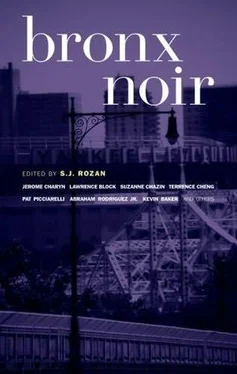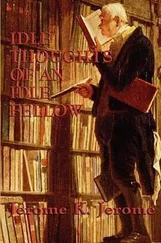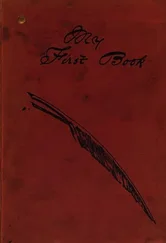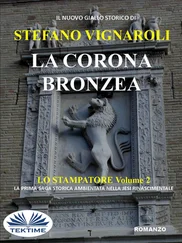I screamed and ran, and he called after me, “What did I say? What did I say?” I zigzagged across Kingsbridge Road, still screaming and almost getting clobbered by a big cream-and-red bus. The sidewalk swarmed with people. Outside a Kosher bakery I dodged three baby carriages and Julian Levine from school. “Hey, meshuggeneh ,” he yelled, “what’s the matter by you?” Sister Mary Michael from Our Lady stuck out her arm to stop me, but I slapped it away and kept going. I’ll pay for that, I know, hitting a nun — even a gazillion “Hail Marys” won’t atone. So many people on the sidewalk and they were all gonna die. Could it happen again? Like the Jews in the camps? Was Julian Levine gonna burn in an oven? Was Sister Mary Michael? Was I? I whipped past the big stone armory to Jerome Avenue, then up Jerome around the reservoir, past the colleges. It was all I could do to keep from howling the whole time. My legs pumped like those wheel rods on a freight train with cattle cars. What was I running from? From the man with the leg? From Miss Cohen’s poems? I didn’t know, but I couldn’t stop. It was like something was sick in my stomach that I didn’t want to vomit into my head. No, that doesn’t make any sense. I ran like I had the Gestapo at my heels. I tripped on broken concrete and fell and skinned both knees, and it didn’t slow me down one bit. When I turned onto the far end of Sedgwick, I knew I’d never get away from whatever was chasing me so I might as well go home.
In front of our building an ambulance idled, ashy smoke puffing from the tailpipe, revolving lights turning the neighbors’ faces red and white. Blood and bone. Blood and bone. Ashes, blood, and bone. Two men in white carried a stretcher out from the courtyard. A sheet strained to cover a huge belly but missed the top of a red-bristled head. A couple of policemen followed the stretcher. One of them was my father.
I grabbed his hand. “Is that Mr. Schmidt?” I heard my voice rise to a screech.
“Yeah, it’s Henry, all right — poor son of a bitch.” He pulled the sheet from the gray face. “Looks like someone poisoned him. Vomit all down the stairs. Funniest thing — there was a big red maraschino cherry smack in the middle of it.”
But I didn’t need him to tell me that. Flecks of coconut were stuck to Mr. Schmidt’s stubbly chin with lemon goo. It looked like the unbaked scones my mother painted with egg and sprinkles. His chin was like a raw lumpy coconut scone. I never wanted to eat again.
The kids were crowding around now. “That crazy killer lady in 4-C did it,” Katy-Ann Cooper said. “Remember, you got her that coconut cake? I just know she did it.”
“Shut your mouth, Katy-Ann,” I hissed. “You don’t know nothing.”
That was two years ago. I was a kid. This morning, when I looked for the Daily Mirror , my mother lied to me. She said the papers didn’t come. Then I saw them at the candy store on the corner. Big headlines — the Mirror , the News , the Herald Tribune .
Concentration Camp Victim’s Appeal Fails.
Bronx Killer Gets Chair.
Rachel Cohen, Poet, to Die .
I’m looking for Katy-Ann Cooper right now. When I find her, I’m gonna give her the worst Indian burn of her whole entire life.
I think she’ll burn in hell forever.
Somebody ought to.
The woman who hated the bronx
by Rita Lakin
Elder Avenue
Linda Blue came from nothing and wanted everything. With the small amount of money she inherited from the last of her soul-numbing foster parents, she was able to go to nursing school. She became a nurse so she could marry a doctor. She would marry a doctor so she could become a doctor’s wife. She didn’t have the confidence to nab one who was already established, so she played the odds; she picked an easygoing, nice-looking young resident.
Frank Lombardi, who saw himself as just an average guy, thought Linda looked like the movie star Grace Kelly, aloof and unattainable. Grace was soon to become the Princess of Monaco and he felt he’d found a princess too. He was amazed at his good luck.
Linda chose Frank Lombardi as the answer to her prayers. He would save her.
The problem was, Linda picked wrong.
She didn’t go to heaven. She went to hell.
He took her to back to the Bronx.
They’d had a whirlwind courtship. During their short engagement, she spelled out her dream, many times, in great detail. She would live in the country, perhaps near Scarsdale, in a pretty house with a little garden, and maybe one child.
He didn’t hear her.
Frank shared his goal — giving back to all those who made it possible for a poor kid to get so far. He was talking about his family who supported him through med school and his friends and neighbors who encouraged him. So he intended to heal the sick in his old neighborhood. To take care of those who took care of him.
She was tuned into her own fantasies, and didn’t listen.
She talked him into eloping. He wanted a wedding with family and friends. “I want to see my princess in a white gown.” She told him she had no one to invite and that he should save his money for setting up his practice.
The first thing brand new Doctor Lombardi did before they left Newark in June was to buy a slightly used ’50 Buick LeSabre — he thought the tail fins were nifty, and it was perfect to carry his adored wife to their new home. During the drive up from Jersey, Frank had been secretive about their destination. He couldn’t wait to see her response to the place he’d picked out. Linda could hardly wait to see her dream house.
On route, he told her they had to start out modestly until he made some money. She told him she didn’t care about money. She thought White Plains would be pretty too. She’d even thought about the new Levittown she’d read about in Life magazine. As she told him many times, she just needed peace and quiet.
On the Cross Bronx Expressway, she’d been dozing. When he turned at Bruckner Boulevard, she woke up and found herself looking at ugly brick buildings and vacant lots filled with trash and scruffy children playing in the streets. What shortcut was he taking? Was he lost? But in moments he stopped at a corner and parked. She read the two intersecting street signs, Elder Avenue and Watson Avenue .
“Where the hell are we?” she asked.
“The Bronx,” he said proudly. “The East Bronx, to be exact. On the Pelham Bay elevated line.”
She turned her face to the window and pressed her throbbing head against its coolness. Oh God, no. Not the Bronx again.
“What’s the matter?” he asked.
She wouldn’t look at him. “This place will be the death of me.”
“Don’t be silly. You’re gonna love it here.”
He helped her out of the car and grandly showed her around like a docent at a fine museum. “Welcome to my neighborhood. Look across the street.” He pointed to a brick two-family house directly opposite. “I grew up in that house. Mama and Papa are on the left. My sister Connie and her husband Al and their kids live in the other. You’ll meet them tonight.”
So close? No, not so soon. I’m not ready for any of this…
He fondly recollected for her. “I played stickball in these streets. I rode my sled down that hill. I played immies in these gutters. God, it’s great to be home.” She turned away and he assumed she was ready for the rest of his tour.
“Here’s our building. Six stories high.”
What she saw were over-filled garbage cans. Dogs running loose. People. So many people. So much noise.
Practically shaking with excitement, Frank turned right and walked her to a door, the only break in the brick structure. “My office! My patients will use this entrance. And…” He led her again, this time into the three-sided courtyard. “Look at our great brick courtyard.”
Читать дальше












